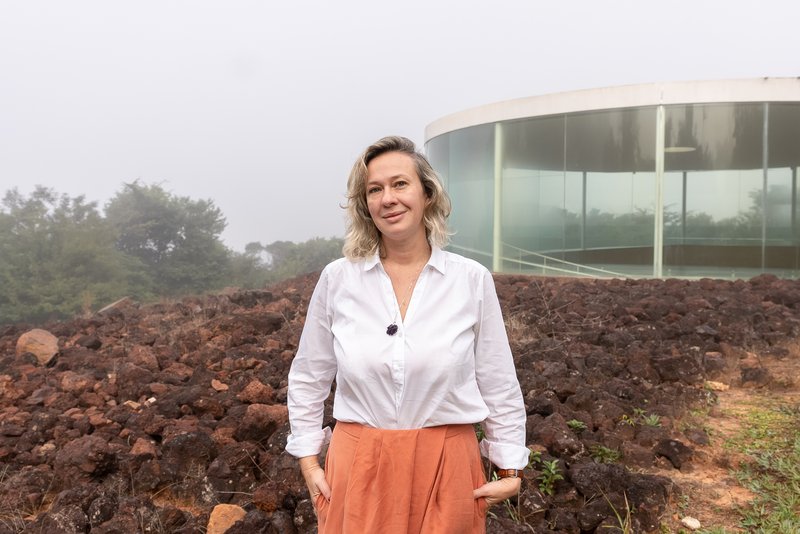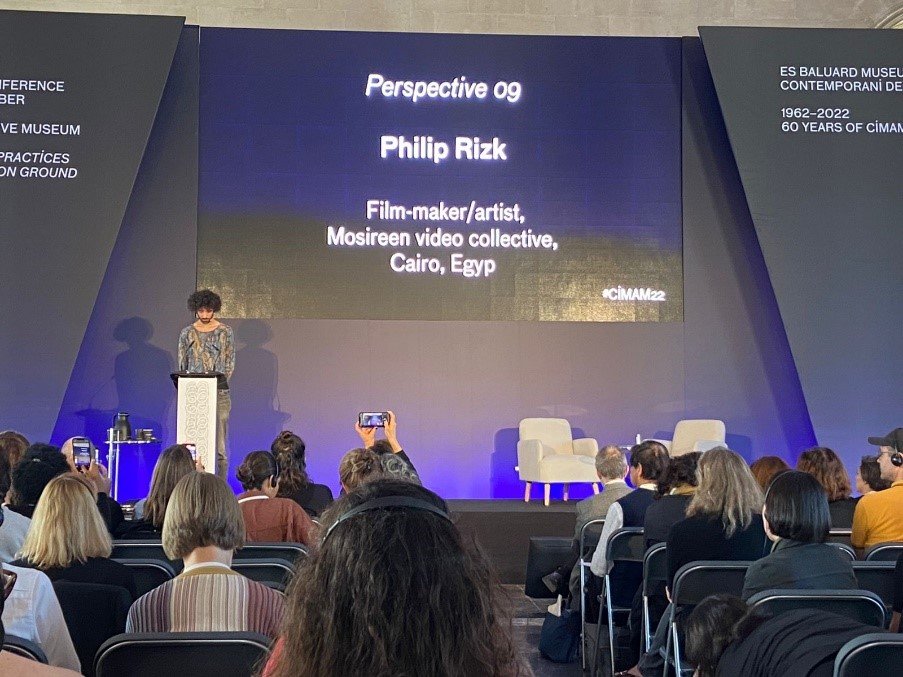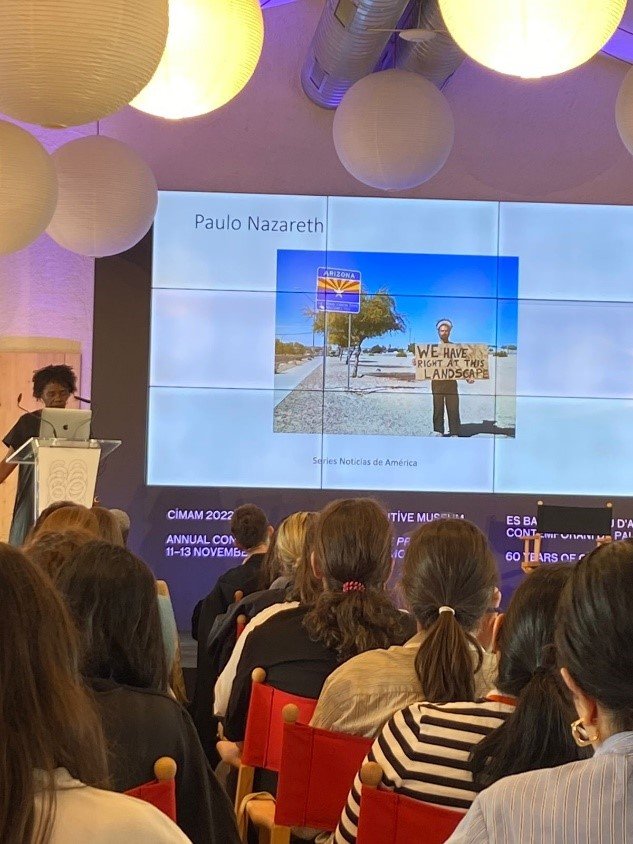Lorena Andrea Vicini

In 2022, 41 contemporary art curators, researchers, and museum directors from 24 different countries were awarded to attend the CIMAM 2022 Annual Conference. The CIMAM 2022 Annual Conference, titled "The Attentive Museum. Permeable Practices for a Common Ground", was held in Mallorca (Balearic Islands), Spain on 11–13 November, hosted by Es Baluard Museu d'Art Contemporani de Palma.
Lorena Andrea Vicini's Conference Report
Filmmaker and artist Philip Rizk, a member of the Mosireen video collective in Cairo, Egypt, opened his presentation with the question: “How do we, as cultural institutions, relate to the center of power?” He presented excerpts from his film Mapping Lessons, showing radical examples of autonomy throughout the history of mass uprising. After each excerpt, Mr. Rizk paused and asked the audience: “Did you hear that?” There are several layers to this. One of them is to become aware of our surroundings, as Franz Fanon, a radical listener did.

The day before, University of British Columbia Professor Dr. Denise Ferreira da Silva presented “After It´s all Said”. Ms. Ferreira referred to Fred Moten’s matrix of power and the refusal of classification and categories. She spoke about Brazilian artist Paulo Nazareth, who identifies as Black and Indigenous and refuses to be identified as mestizo, a category he considers “reductionist”. “Museums should create protocols and ways to inhabit that refusal, in a way that it can be appreciated”, said Ms. Ferreira.

I start this report on the CIMAM 2022 Annual Conference with these two presentations, which are representative samples of the Zeitgeist of the event. On one hand, there was an acknowledgement of a call to listen to the questions raised by our time and act towards those queries. At the same time, there was an urgent need to unlearn the answers we usually have for them, that often backslide into the old power structures. Quoting Paul Preciado, it is time to “scape from the oppressive cage”.
The Conference was an important moment of recognition. Agustín Pérez Rúbio brought up how post colonial and decolonial studies led us to understand how the modern and contemporary art was founded under the colonial regime. The format and speakers of the event represented multiple voices, as an attempt to bring other perspectives beyond the Eurocentric museum and change our epistemologies and histories. “But this change has to be from inside the institution. Information is essential to identify where the center of power is”, he said.
The next edition of the CIMAM Conference (which will be held in the Global South) could be an occasion to go further and encourage discussions for more profound structural change.To seize the opportunity that this event presents by bringing together the world’s greatest museum leaders and practitioners, take risks, ask clear and direct questions, bring people together to think about speculative practices such as: How can we think of other power relations that do not place the Curatorship in such an asymmetrical position in relation to other museum departments? How can we challenge the museum’s bureaucracy so that it approaches the audience, artists and staff in a way that is fair? How can an aware museum rethink its admission policy?
If we think of the museum as a place for subjectivity change and its potential for proposing new possibilities of being in the world, the discussions held at CIMAM 2022 Annual Conference were a great start for what might come.
Finally, I commend the outstanding work of the CIMAM team – Susana Carnicero, Inés Jover and Mireia Azuara – who did a flawless job hosting and communicating with the grantees. To CIMAM and its team, my special gratitude for providing a unique chance of exchange with my colleagues and for fostering a deeper thinking about my professional task as museum practitioner.